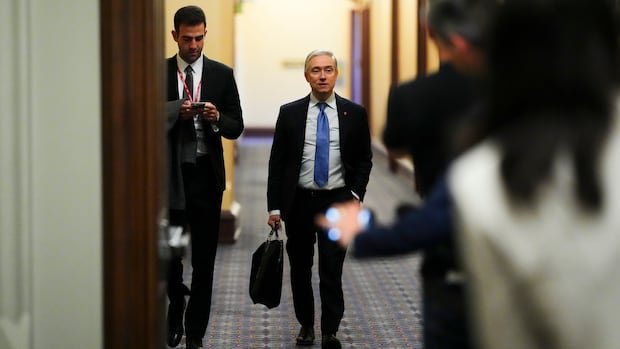Finance Minister François-Philippe Champagne highlighted a recent International Monetary Fund (IMF) report indicating that the global economy is resilient in the face of U.S. tariffs but hindered by trade uncertainties. Champagne is currently in Washington attending meetings with G7 and G20 finance ministers and the IMF and World Bank Group.
Speaking at the IMF headquarters, Champagne stressed the importance of stability and predictability in the world economy, with a focus on reducing uncertainty among G7 countries. The IMF’s latest report noted that global growth, while sluggish, is not as dire as previously anticipated. However, risks remain due to ongoing trade tensions and a volatile economic environment.
Canada, heavily impacted by U.S. tariffs, is projected to experience slowed growth this year at 1.2 percent. Despite these challenges, the IMF forecasted that Canada could become the second-fastest-growing G7 economy in the coming year, surpassing the United Kingdom and trailing the United States. This outlook, at 1.5 percent growth, is lower than the IMF’s earlier projection of 2.4 percent growth for Canada in 2025.
Trade uncertainties continue to cast a shadow over the Canadian economy, with efforts ongoing to address Trump’s tariffs. Additional U.S. tariffs on various Canadian industries further compound the economic strain. Prime Minister Mark Carney and Canadian officials are working to navigate these challenges and find solutions.
President Trump has hinted at imposing more tariffs, including on pharmaceutical and aerospace products. Trade discussions between Canada and the U.S. are ongoing, with Trade Minister Dominic LeBlanc in Washington this week for further talks.
Champagne emphasized that the world economy is adapting to a new trading landscape, with all G7 partners facing fiscal constraints amid unprecedented transitions. The IMF report encourages governments to balance fiscal discipline with capital investments for economic growth.
Looking ahead, the upcoming federal budget, to be presented on November 4, will include “generational investments” in Canada’s development. Carney’s government aims to divide budgetary allocations between capital and operational spending streams to achieve a balanced operating budget by 2028-29. The budget will feature initiatives like pre-filled tax returns, permanent funding for the national school food program, and the reintroduction of the “Canada Strong” pass.
Champagne expressed confidence in Canada’s future prosperity, citing the nation’s strong foundation, trade agreements, critical resources, and skilled workforce. Despite short-term turbulence, he remains optimistic about Canada’s long-term economic outlook.


